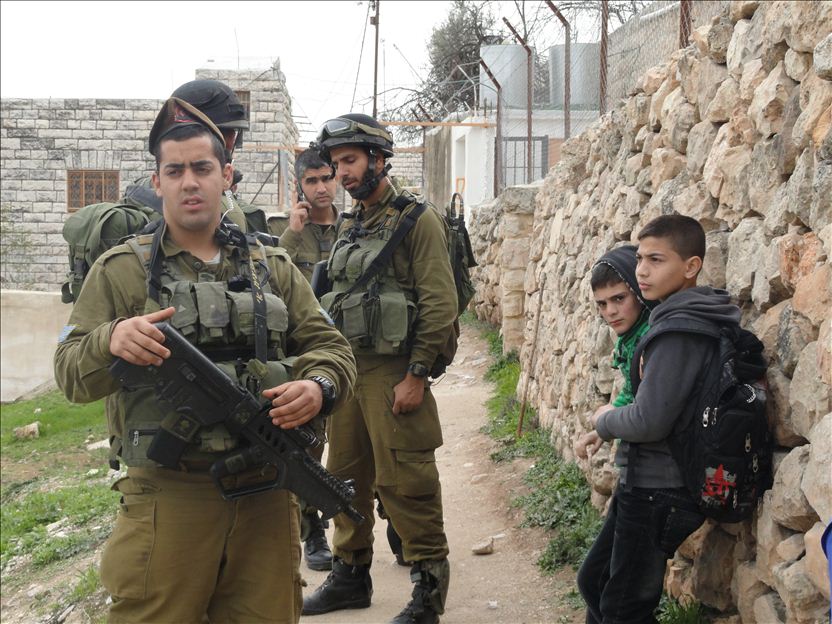-
Hebron: At least 10 children arrested by Israeli military in one week
by Satu Gustafsson 11 February 2012 | International Solidarity Movement, West Bank The extreme Golani Unit of the Israeli military is escalating its arrests of Palestinian children in Al Khalil (Hebron), targeting boys between the ages of 12 to15 years old with at least 10 reported cases of child arrests made just in the span […]
-
Burin: Yitzhar settlers leave the mark of violence
by Veronica 10 February 2012 | International Solidarity Movement, West Bank On Thursday 9 February at about 10pm, a house in the village of Burin near Nablus was attacked by settlers. Approximately 50 armed settlers approached a house near the edge of the village and threw stones and rocks at the inhabitants, shouting at them […]
-
Israeli military court extends administrative detention for civil rights lawyer Dr. Yousef Abdul Haq
9 February 2012 | Tanweer Enlightenment Forum The Israel military court has extended administrative detention for two months in addition to three months already detained for civil rights lawyer Dr. Yousef Abdul Haq, a lecturer at An-Najah National University and the Cultural Coordinator for the Tanweer Palestinian Cultural Enlightenment Forum, currently detained in Ofer Prison […]
Action Alert An Nabi Saleh Apartheid Wall Arrests BDS Bethlehem Bil'in Cast Lead Demonstration Denial of Entry Ethnic Cleansing Farmers Gaza Global Actions Hebron House Demolition International law Israeli Army Jerusalem Live Ammunition Nablus Ni'lin Prisoner Ramallah Rubber-coated steel bullets Settlement Settlers Settler violence Tear-Gas Canister Video


